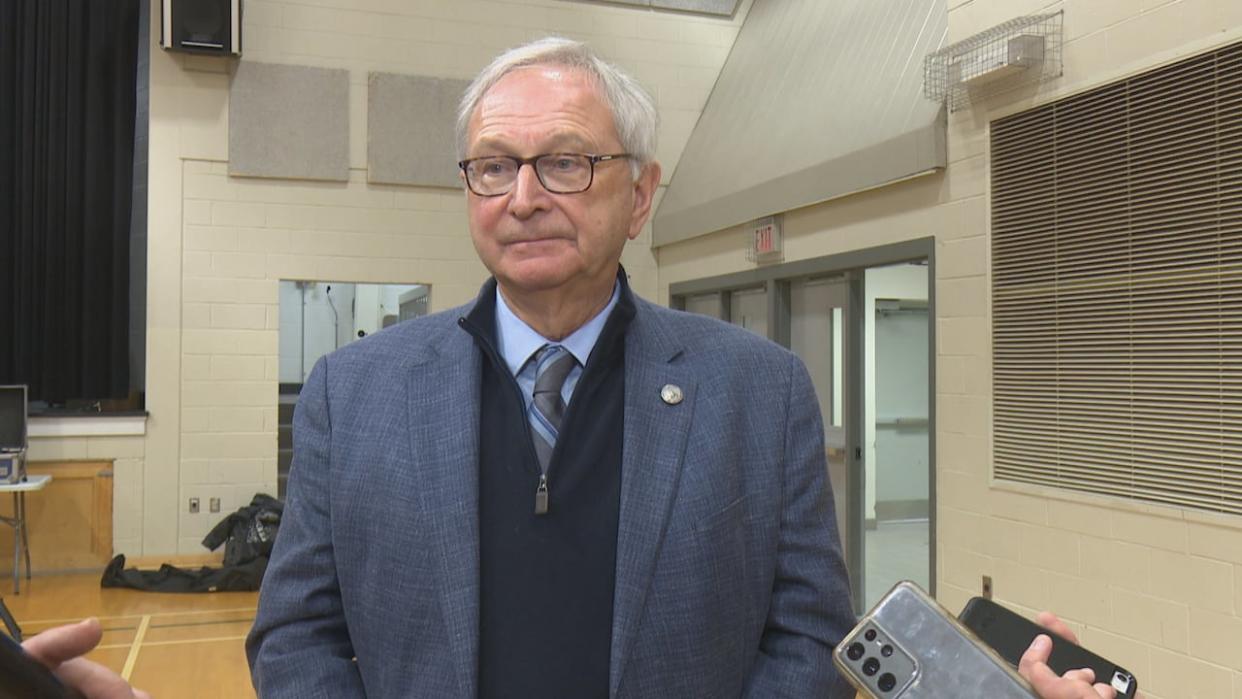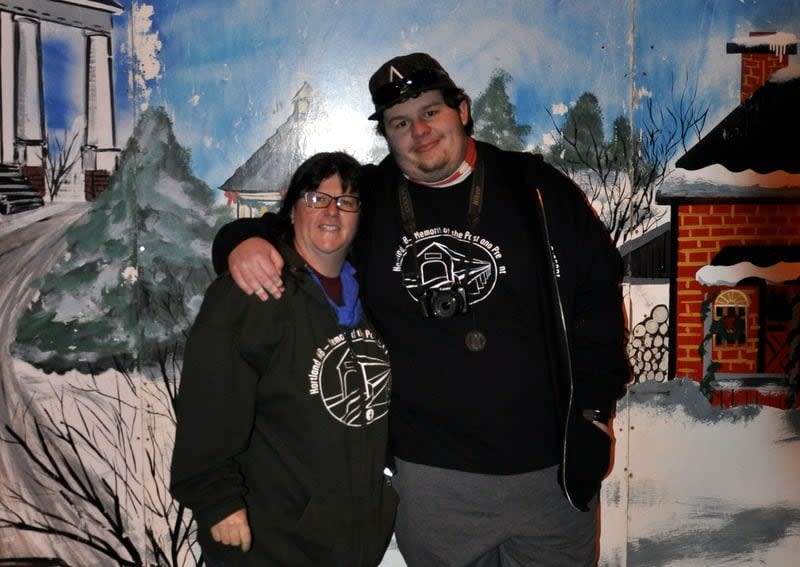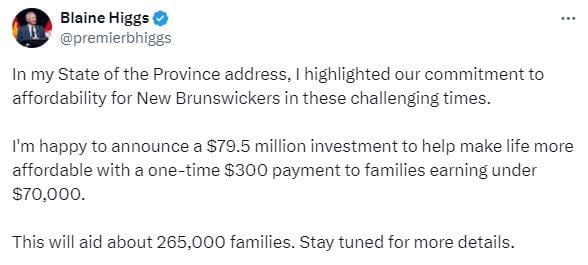'Working' requirement shuts door on N.B.'s $300 affordability payment to thousands

A requirement unveiled by the New Brunswick government that households will have to show at least $3,000 in "working" income to receive a new $300 affordability benefit will disqualify tens of thousands of seniors and others from accessing the money.
That news is not sitting well with retirees who initially appeared to be included in the plan announced by Premier Blaine Higgs in January.
"It's absolutely annoying, very upsetting," said Riverview town councillor and seniors advocate Cecile Cassista about the requirement.
"Our seniors don't qualify now because seniors don't work."

Cecile Cassista is the executive director of the Coalition for Seniors and Nursing Home Residents’ Rights and is angry a $300 "affordability" benefit announced in January excludes those without employment income, like retirees. (CBC)
In a news release issued by the Department of Finance on Tuesday, the province announced that recipients "must" have "working income of $3,000 or more" in 2022 or 2023 to qualify for the $300. The rules allow for one payment per household, including single-person households.
In Campbellton Wednesday, Higgs said his government made it clear from the beginning the $300 benefit was only meant for people with jobs. He said retirees and others without employment income were never to be included.
"Any announcement, any press release, anything we put out clearly stated it's for the working families or the working class," said Higgs.
However, that's not entirely the case.
Last month at his annual state of the province address, Higgs announced what he called a new "affordability measure" to benefit 250,000 families.
Details were limited but the premier said it involved a "one-time payment of $300 for families with a net income of $70,000 or less."
In that speech, Higgs did say the program was aimed at "low-income working New Brunswickers" but it appeared it might include others as well, in part because in his social media posts the following day Higgs dropped the reference to "working New Brunswickers" entirely.
"I'm happy to announce a $79.5 million investment to help make life more affordable with a one-time $300 payment to families earning under $70,000," he wrote on the social media platform X the day after the speech. "This will aid about 265,000 families."
N.B. woman expected payment
That helped fuel expectations of people like Tammey Mclean that she could access the $300 payment.
However, she lives off her late husband's carpenter's pension and Canada Pension Plan payments and has been told it's not for her.
"You've got to have a $3,000 workable income. I don't have that," said Mclean.

Tammey Mclean with her son Colby. Mclean said she lives on her late husband's pensions and is disappointed to find that she does not qualify for the new $300 affordability benefit. ( Submitted by Tammey Mclean)
Another sign from the province that more than just working people would be included in the program was the simple math of it not being possible to assist 250,000 or 265,000 New Brunswick households with incomes below $70,000 without including other groups.
According to Statistics Canada, just 168,860 New Brunswick households had pre-tax incomes of $70,000 or below in 2020, with 193,750 reporting after-tax incomes below $70,000.
Included in those numbers are at least 30,000 single-person households headed by retirees who reported no employment income at all. Also included are thousands of other non-working households comprised of retired couples, social assistance recipients and those surviving on disability payments.
With those groups excluded, there are not enough households left with incomes below $70,000 to help anywhere near the 250,000 government claims are included.

A social media post by Blaine Higgs about the $300 affordability benefit on Jan. 26 made no mention of it being only for those who work, even though he now says every announcement made that clear. (Blaine Higgs/X)
Requests to the department of finance last week and this week to pinpoint where the estimate of 250,000 families earning less than $70,000 comes from has so far gone unanswered.
"Seniors are frustrated," said Cassista.
"It's very upsetting because what's been on their mind is that $300. Are we getting it? Because every penny counts."


